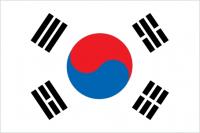Global Citizenship Education (GCED): Taking It Local in Asia-Pacific
UNESCO Bangkok
(
Intergovernmental organization
)
#SDGAction33737
Description
The ‘GCED: Taking It Local’ practice is about the localization and promotion of GCED, as part of SDG 4.7. The Asia and Pacific region is culturally diverse and in order to fully realize Global Citizenship Education across it, it is essential to connect people from various contexts and values. To help people connect the abstract concept of GCED with their local contexts, in collaboration with APCEIU, UNESCO Bangkok has been supporting the regional efforts in promoting GCED, including publishing a few knowledge productions that collected, analyzed local practices of GCED, as well as developed advocacy tools for promoting GCED. The beneficiaries are all countries in the Asia-Pacific region.
The activities of this practice were planned and executed by UNESCO Bangkok, supported by APCEIU financially. One of the first activities connected key GCED practitioners in the Asia-Pacific region through a foundation meeting to form a GCED Network. This Network is created to increase synergy and collaboration among key practitioners. Therefore, to strengthen the promotion and implementation of GCED. The Network members include policymakers, education experts, research institutes, etc. The following activities after the foundation meeting were planned and executed on a yearly basis by UNESCO Bangkok, in collaboration with APCEIU. The activities focus on five action areas that the Network identified, namely, advocacy, capacity building, learning/teaching material, policy, and research. UNESCO Bangkok, as the Secretariat of the Network, planned the yearly activities for the Network to promote GCED, the contributions including human resources and other in-kind contributions. APCEIU as one of the co-chairs provided financial contributions. Other Network members provided in-kind contributions.
As a result, some countries started to include GCED into their education policies. For instance, India’s National Education Policy 2020 specifically mentioned GCED as one of the priority areas to promote in the education system. Also, the GCED practices became more active in the Asia-Pacific region. For example, the Philippine National University developed a ‘GCED Curriculum Development and Integration Programme’ in the Philippines with the support of UNESCO Bangkok and APCEIU. The increased number of GCED policies and GCED practices developed in the Asia-Pacific countries will contribute to the individuals, families, societies to be more inclusive, peaceful, and sustainable. Although in general the practice is very welcomed in the region, the activities could use more support from a larger group of stakeholders. Therefore, UNESCO Bangkok and APCEIU are developing a series of advocacy materials to raise awareness on key stakeholders in the region (e.g., policymakers, teachers, students, parents).
The finance contribution from APCEIU, the in-kind and human resource contributions from UNESCO Bangkok to this practice enabled it to succeed. The partnerships that this practice built with the countries in the region (Ministries of Education, UNESCO National Commission) and education experts, as well as research institutes, provided technical support to the practice. The practice leveraged the in-kind support from the GCED Network members, which is a cost-effective approach.
The practice is still on-going and will be continued with the support of APCEIU and UNESCO Bangkok. UNESCO Bangkok and APCEIU will continue the momentum each year and support the regional efforts in promoting GCED. Specifically, an annual meeting will be held to share local practices, challenges, opportunities, and areas for improvement with GCED Network members. Research activities responding to the timely needs of regional GCED practitioners, including policy guidance, learning/teaching materials will be continued. Capacity-building activities for key stakeholders will be further strengthened with the aim of training other stakeholders to become facilitators themselves, hence the scope of training will be enlarged at the local level. Advocacy materials and activities will be continued to be carried out for awareness-raising. Similar practices can and are being applied in other regions as well with the support of APCEIU.
1. Global Citizenship Education: Topics and Learning Objectives (UNESCO, 2015); 2. Global citizenship education: taking it local (UNESCO, 2018); 3. Asia-Pacific Regional GCED Network Meeting Final Report (UNESCO, 2018); 4. GCED: Taking It Local in Asia-Pacific (UNESCO Bangkok, 2019); 5. Understanding GCED in Asia-Pacific: A How-to Guide for ‘Taking It Local’ (APCEIU, 2020); 6. GCED Learning and Assessment: An Analysis of Four Case Studies in Asia (APCEIU, 2020).
COVID-19 indeed brought many challenges to the practice and activities, however, UNESCO Bangkok and APCEIU successfully managed to maintain and continue the practice by using technology and communication. This practice of GCED in local and regional areas is even more in need with the COVID-19 pandemic. COVID-19 has reminded people that the world is more and more interconnected, and it needs collective actions to face common challenges. Therefore, the promotion of GCED will better empower all learners to become responsible, active global citizens to building back better from COVID-19 impacts.
SDGS & Targets
Deliverables & Timeline
Resources mobilized
Partnership Progress
Feedback


Timeline
Entity
Ongoing
Other beneficiaries
The direct beneficiaries, key stakeholders, and partners of this practice are GCED network members, including officials from member states (i.e., Ministry of Education, National Committees for UNESCO), teaching professionals, and research institutes. Other beneficiaries will be the greater GCED stakeholders, policymakers, learners, teachers, school leaders, and their families.
More information
Countries

Contact Information
Mark, Associate Programme Specialist, Inclusive and Quality Education Section
